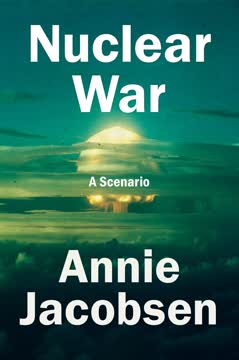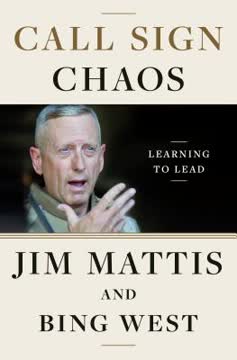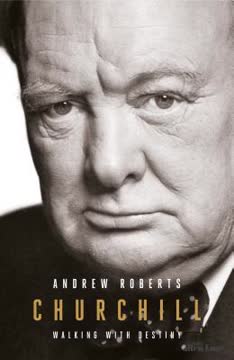Key Takeaways
1. Great leaders shape history through their unique qualities and circumstances
"It is enough for a Czech to grow a mustache for anyone to see, from the way it droops, that his origin is Mongolian," Hitler stated in January 1942.
Unique personalities. The leaders examined in this book, from Napoleon to Margaret Thatcher, each possessed distinctive qualities that set them apart. Their backgrounds, experiences, and personal traits shaped their leadership styles and decision-making processes.
Products of their time. These leaders were also influenced by the historical contexts in which they lived. Napoleon's rise was facilitated by the French Revolution, while Churchill's resolve was forged in the crucible of World War II. Their actions were both shaped by and helped shape the course of history.
Lasting impact. The decisions and actions of these leaders had far-reaching consequences that extended well beyond their lifetimes. Napoleon's legal reforms, Churchill's defiance of Nazi Germany, and Thatcher's economic policies continue to influence modern societies and political thought.
2. Charisma and self-belief are essential but can be manufactured
"You think I am interested in England winning the war," he told his British liaison officer, General Sir Louis Spears. "I am not. I am only interested in French victory."
Cultivated charisma. Many leaders, like Hitler and Napoleon, deliberately cultivated an image of charisma to inspire followers and consolidate power. This involved careful staging of public appearances, control of media narratives, and the creation of personal mythologies.
Unwavering self-belief. All the leaders examined demonstrated an extraordinary level of self-confidence, often bordering on hubris. This self-belief was crucial in inspiring others and persevering through difficult times.
Dangers of manufactured image. While charisma and self-belief can be powerful tools, they can also lead to detachment from reality and poor decision-making. Hitler's manufactured image of infallibility ultimately contributed to Germany's downfall.
3. Ideology and personal experiences profoundly influence leadership style
"France cannot be France without greatness," General de Gaulle wrote in the opening paragraph of his War Memoirs.
Ideological foundations. The leaders' actions were often driven by deeply held ideological beliefs. Stalin's adherence to Marxism-Leninism, Hitler's racial theories, and Thatcher's free-market principles all significantly influenced their leadership approaches.
Formative experiences. Early life experiences played a crucial role in shaping these leaders' worldviews. De Gaulle's resentment of the Fashoda incident, Churchill's Victorian upbringing, and Stalin's experiences in the Russian underground all informed their later actions as leaders.
Consistency and evolution. While some leaders remained relatively consistent in their ideological stances, others evolved over time. Understanding these ideological foundations and how they changed is key to comprehending these leaders' decision-making processes.
4. Effective leaders balance strategic vision with adaptability
"I detest women who dabble in politics. And if their dabbling extends to military matters, it becomes utterly unendurable. In no local section of the Party has a woman ever had the right to hold even the smallest post."
Long-term vision. Successful leaders like Churchill and de Gaulle maintained a clear long-term vision for their nations, even in the face of immediate challenges. This allowed them to make decisions with broader historical context in mind.
Tactical flexibility. Despite having overarching strategies, effective leaders like Eisenhower demonstrated the ability to adapt to changing circumstances on the ground. This flexibility was crucial in navigating the complexities of warfare and international politics.
Learning from mistakes. The capacity to learn from failures and adjust strategies accordingly was a hallmark of successful leadership. Napoleon's ability to learn from early setbacks contributed to his later victories.
5. Communication and inspiration are crucial leadership skills
"When the French fight for Mankind, they are wonderful," wrote André Malraux; "when they fight for themselves, they are nothing."
Powerful oratory. Leaders like Churchill and de Gaulle used their oratorical skills to inspire their nations during times of crisis. Their speeches became rallying points for resistance and perseverance.
Symbolic actions. Effective leaders understood the power of symbolic gestures. De Gaulle's return to Paris and Thatcher's response to the Falklands invasion were carefully staged to maximize their inspirational impact.
Direct communication. Many leaders, including Napoleon and Churchill, sought to communicate directly with their followers, bypassing traditional channels when necessary. This direct connection helped build loyalty and maintain morale.
6. Ruthlessness and decisiveness are often necessary in wartime leadership
"The defeat of the German armies is complete," over eight very bloody months before it genuinely was.
Tough decisions. Wartime leaders often faced morally ambiguous choices. Churchill's decision to sink the French fleet at Mers-el-Kébir and Stalin's scorched earth tactics demonstrate the difficult decisions required in wartime.
Personal cost. The burden of these decisions weighed heavily on many leaders. Thatcher's personal letters to families of fallen soldiers reveal the human toll of leadership during conflict.
Balancing act. Effective leaders had to balance ruthlessness with maintaining moral authority. Those who failed to do so, like Hitler, ultimately undermined their own positions.
7. Great leaders learn from history but interpret lessons differently
"If only Stalin knew what was going on" was a frequent cry heard by Russians at each heartless new atrocity, yet Stalin knew precisely what was going on.
Historical inspiration. Many leaders drew inspiration from historical figures and events. Napoleon saw himself as a successor to Caesar, while Churchill looked to the Duke of Marlborough.
Selective interpretation. Leaders often interpreted historical lessons to fit their own worldviews and justify their actions. Hitler's misinterpretation of historical "racial" theories had catastrophic consequences.
Creating legacy. These leaders were also conscious of their place in history and often acted with an eye toward how they would be remembered. This awareness sometimes influenced their decision-making processes.
8. Personal courage and leading by example inspire followers
"A sense of humor and a great faith, or else a complete lack of imagination," he joked, "are essential to sanity."
Physical bravery. Many leaders, including Napoleon and Nelson, demonstrated personal courage in battle, which inspired loyalty and admiration among their troops.
Moral courage. Leaders like Churchill and de Gaulle showed moral courage in standing up to seemingly insurmountable odds, providing a rallying point for resistance.
Shared hardship. Effective leaders often shared in the hardships of their followers. Stalin's decision to remain in Moscow during the German advance is an example of this principle in action.
9. Successful leaders navigate complex political and diplomatic landscapes
"I have no department and therefore I have to rely on third-hand hearsay, and I don't like it."
Coalition building. Leaders like Eisenhower and Churchill had to manage complex alliances, balancing competing interests to maintain unity of purpose.
Domestic politics. Even in wartime, leaders had to navigate domestic political landscapes. Thatcher's management of her cabinet during the Falklands crisis demonstrates this skill.
International diplomacy. Successful leaders understood the importance of international perception. De Gaulle's insistence on French prestige and Stalin's manipulation of Allied leaders at conferences were crucial to their success.
Last updated:
FAQ
What's "Leadership in War: Essential Lessons from Those Who Made History" about?
- Overview of Leadership: The book explores the leadership qualities of nine historical figures who led during times of war, analyzing their strategies, decisions, and impacts.
- Historical Context: It provides a historical context for each leader, detailing the wars they were involved in and the challenges they faced.
- Leadership Lessons: The author, Andrew Roberts, distills essential leadership lessons from these figures, applicable to both wartime and peacetime scenarios.
- Moral Neutrality of Leadership: The book discusses how leadership is morally neutral, capable of leading to both great achievements and catastrophic failures.
Why should I read "Leadership in War: Essential Lessons from Those Who Made History"?
- Insightful Analysis: The book offers deep insights into the minds and strategies of some of history's most influential leaders.
- Applicable Lessons: It provides leadership lessons that are applicable beyond military contexts, useful for modern-day leaders in various fields.
- Historical Perspective: Readers gain a better understanding of historical events and the pivotal roles these leaders played in shaping them.
- Engaging Narratives: The book is well-researched and written in an engaging style, making complex historical events accessible and interesting.
What are the key takeaways of "Leadership in War: Essential Lessons from Those Who Made History"?
- Leadership is Complex: Leadership involves a combination of personal traits, strategic thinking, and the ability to inspire and motivate others.
- Moral Neutrality: Leadership itself is morally neutral; it can lead to both positive and negative outcomes depending on the leader's intentions and actions.
- Historical Lessons: Studying past leaders can provide valuable lessons for contemporary leadership challenges.
- Adaptability and Timing: Successful leaders often demonstrate adaptability and a keen sense of timing in their decision-making processes.
What are the best quotes from "Leadership in War: Essential Lessons from Those Who Made History" and what do they mean?
- "Leadership is a protean force of terrifying power." This quote highlights the immense influence leaders can wield, for better or worse.
- "The art of leadership explains how not merely one hundred people, but sometimes a hundred thousand, or a million... can ultimately be led." It underscores the complexity and scale of effective leadership.
- "Leadership is completely morally neutral." This emphasizes that leadership itself is not inherently good or bad; its moral value depends on how it is used.
- "In leaders, the challenge of war brings forth qualities we can readily measure." This suggests that war often reveals the true capabilities and character of leaders.
How does Andrew Roberts define leadership in "Leadership in War"?
- Art of Leadership: Roberts defines leadership as the art of guiding and inspiring large groups of people, often in challenging circumstances.
- Morally Neutral: He emphasizes that leadership is morally neutral, capable of leading to both positive and negative outcomes.
- Self-Belief: A common trait among the leaders discussed is a profound sense of self-belief, which is central to effective leadership.
- Task-Oriented: Leaders often have a clear task or mission they are driven to achieve, which guides their actions and decisions.
What leadership qualities does Andrew Roberts highlight in "Leadership in War"?
- Self-Belief: A strong sense of self-belief is crucial for effective leadership, as seen in leaders like Churchill and Napoleon.
- Adaptability: Successful leaders demonstrate adaptability, adjusting their strategies to meet changing circumstances.
- Inspiration: The ability to inspire and motivate others is a key trait of effective leaders, as exemplified by figures like Nelson and Eisenhower.
- Strategic Thinking: Leaders must possess strategic thinking skills to navigate complex situations and make informed decisions.
How does "Leadership in War" explore the moral neutrality of leadership?
- Neutral Force: The book argues that leadership is a neutral force, capable of leading to both great achievements and catastrophic failures.
- Examples of Leaders: It examines leaders like Hitler and Stalin, who used their leadership skills for destructive purposes, contrasting them with leaders who used their skills for positive outcomes.
- Moral Responsibility: The book suggests that the moral responsibility of leadership lies in the intentions and actions of the leader, not in the concept of leadership itself.
- Understanding Power: Understanding the power of leadership is crucial to directing it toward positive ends, as demonstrated by the leaders discussed.
What historical figures are analyzed in "Leadership in War" and why?
- Napoleon Bonaparte: Analyzed for his military genius and ability to inspire his troops, despite his ultimate downfall.
- Winston Churchill: Examined for his leadership during World War II and his ability to rally a nation during its darkest hours.
- Adolf Hitler: Studied for his charismatic leadership and the catastrophic consequences of his morally bankrupt vision.
- Margaret Thatcher: Included for her decisive leadership during the Falklands War and her impact on British politics.
How does Andrew Roberts use historical context in "Leadership in War"?
- Detailed Backgrounds: Roberts provides detailed historical backgrounds for each leader, setting the stage for their actions and decisions.
- War Contexts: The book explores the specific wars and conflicts each leader was involved in, highlighting the challenges they faced.
- Comparative Analysis: By comparing different leaders, Roberts draws out common themes and lessons applicable across different historical contexts.
- Impact on History: The book examines how these leaders' actions influenced the course of history and shaped the modern world.
What role does self-belief play in leadership according to "Leadership in War"?
- Central Trait: Self-belief is highlighted as a central trait of effective leaders, providing them with the confidence to make bold decisions.
- Examples: Leaders like Churchill and Napoleon are noted for their strong self-belief, which drove their actions and inspired others.
- Overcoming Setbacks: Self-belief helps leaders overcome setbacks and view failures as temporary obstacles rather than insurmountable barriers.
- Inspiration: A leader's self-belief can inspire confidence and trust in their followers, motivating them to achieve shared goals.
How does "Leadership in War" address the concept of adaptability in leadership?
- Essential Quality: Adaptability is presented as an essential quality for leaders, allowing them to adjust strategies in response to changing circumstances.
- Historical Examples: The book provides examples of leaders who successfully adapted to new challenges, such as Eisenhower during World War II.
- Flexibility: Adaptability requires flexibility in thinking and a willingness to change course when necessary to achieve objectives.
- Learning from Mistakes: Leaders who are adaptable learn from their mistakes and use those lessons to improve their future decision-making.
What lessons can modern leaders learn from "Leadership in War"?
- Moral Neutrality: Understanding that leadership is morally neutral can help modern leaders focus on using their influence for positive outcomes.
- Self-Belief and Confidence: Cultivating self-belief and confidence can empower leaders to make bold decisions and inspire others.
- Adaptability and Flexibility: Modern leaders can benefit from being adaptable and flexible, adjusting their strategies to meet evolving challenges.
- Historical Insights: Studying historical leaders provides valuable insights into effective leadership practices and the consequences of leadership decisions.
Review Summary
Leadership in War by Andrew Roberts receives mixed reviews. Many readers appreciate the concise biographical essays on nine wartime leaders, praising Roberts' writing style and insights. Some find the book informative and engaging, particularly for those interested in history and leadership. However, critics argue that the book lacks depth, with some chapters feeling rushed or superficial. The selection of leaders and Roberts' analysis of their qualities are points of contention for some readers. Overall, the book is seen as a solid introduction to wartime leadership, though not exhaustive.
Similar Books
Download PDF
Download EPUB
.epub digital book format is ideal for reading ebooks on phones, tablets, and e-readers.












